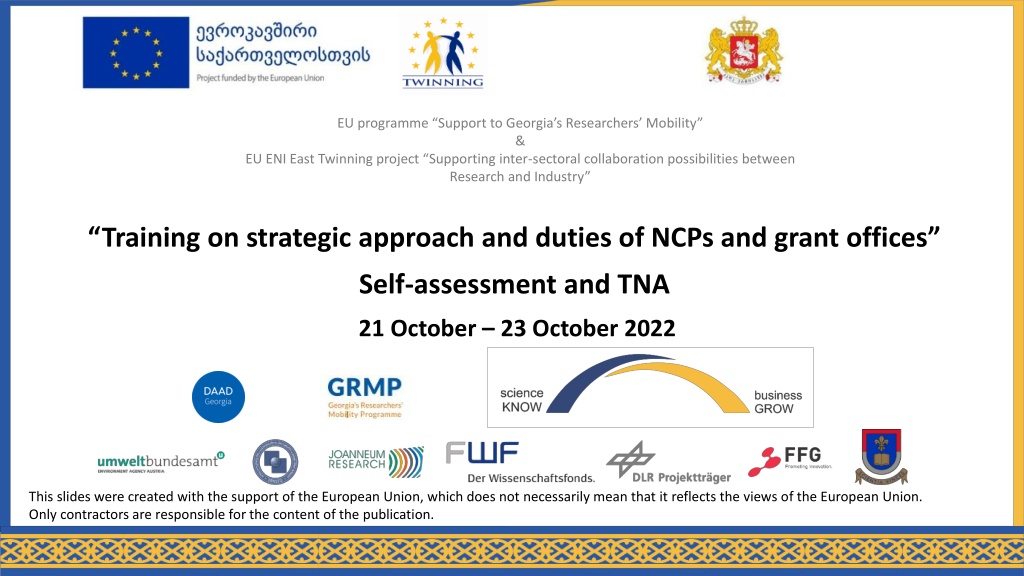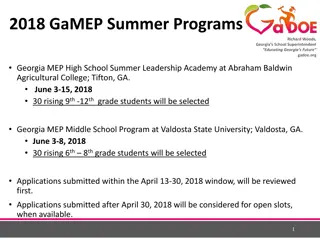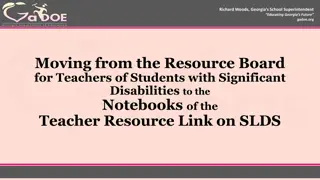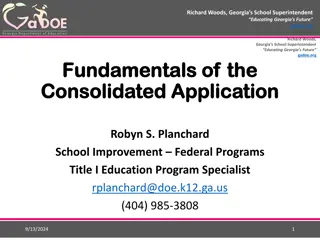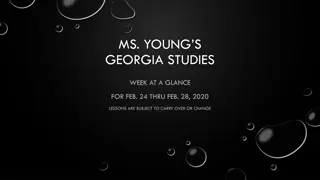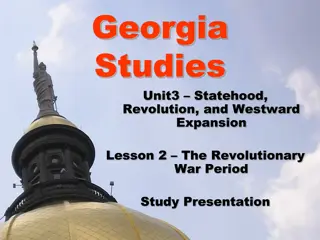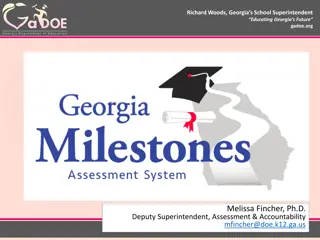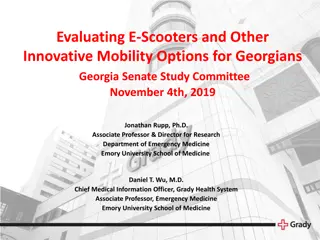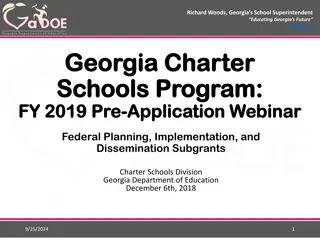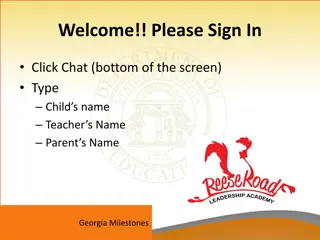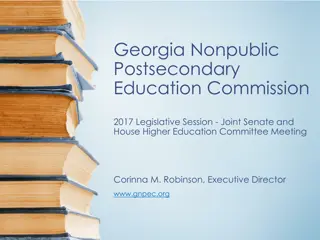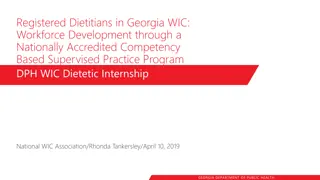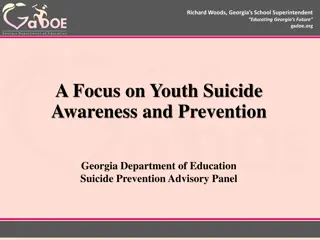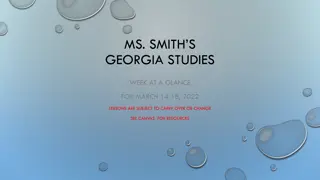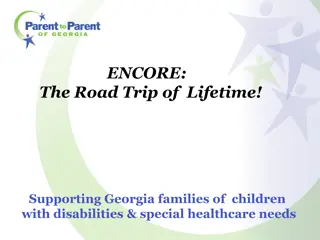Training and Evaluation Program for Georgia's Researchers Supported by the EU
Training program on strategic collaboration between research and industry, self-assessment, training needs analysis, and evaluation of the University Grant Office in Georgia. The program aims to identify knowledge and skills gaps, enhance inter-sectoral collaboration, and recognize the skills acquired by grant office coordinators.
Download Presentation

Please find below an Image/Link to download the presentation.
The content on the website is provided AS IS for your information and personal use only. It may not be sold, licensed, or shared on other websites without obtaining consent from the author. Download presentation by click this link. If you encounter any issues during the download, it is possible that the publisher has removed the file from their server.
E N D
Presentation Transcript
EU programme Support to Georgias Researchers Mobility & EU ENI East Twinning project Supporting inter-sectoral collaboration possibilities between Research and Industry Training on strategic approach and duties of NCPs and grant offices Self-assessment and TNA 21 October 23 October 2022 This slides were created with the support of the European Union, which does not necessarily mean that it reflects the views of the European Union. Only contractors are responsible for the content of the publication.
TRAINING NEEDS ANALYSIS What is Training Needs Analysis - TNA Method of determining if a training need exists and, if it does, what training is required to fill the gap (knowledge, skills and competencies). Seeks to identify the levels of the present situation in the target surveys, interview, observation, secondary data and/or workshop. Why should we conduct a TNA? Avoids training for training sake . Enable us to identify knowledge and technical skills gaps before they become a problem. Targets areas of greatest need. Separates the symptoms from the causes.
SELF-ASSESSMENT "Magic Mirror on the wall, who is the fairest one of all? "Famed is thy beauty, Majesty.
WHERE IS THE PROBLEM? Both the queen and the magic mirror The Queen: An icily beautiful woman with a serene, unfeeling face and a slender figure from outside, but in reality, this collected and stately facade hides an extremely sadistic, hateful, cold and sinister person! The Magic Mirror Knows the response for one externally visible feature
What is the purpose of the evaluation? The object of the evaluation is the University Grant Office as an entity composed of X members. These members were appointed via selection interviews based on an open call and they took part in the training and internships organized by TWINNING project, Horizon Europe Office, Scientific Management School, etc.. They have different profiles and skills.
WHAT DOES THE ASSESSMENT CONSIST OF? It is a question of evaluating the knowledge, skills & competencies acquired by the University Grant Office coordinators for Recognize the skills and expertise of the unit Legitimize it, Make it visible Make it sustainable Valuing the achievements of the unit in its institutional environment and beyond
ASSESS THE EFFECTIVENESS AND IMPACT OF THE UGO Effectiveness: This is the comparison between the objectives set at the start and the results achieved. The interest is to measure the differences and to be able to analyse them. Fitness for purpose! The impact: appreciation of all the effects of the creation and the activities of the Office on its environment
Evaluate skills to evolve and train continuously The evaluation allows the Office to identify its strengths and weaknesses and therefore to evolve. Evaluation for: Motivating members to update & develop their skills and competencies Engaging a virtuous circle of self-training & continuing education Making the Office more efficient
Evaluate to make visible and legitimize the UGO: The evaluation is not an examination , quite the contrary it is a positive and energizing action which mobilizes all the staff of the Office and the management of the institution. The evaluation strengthens the "credibility" and visibility of the Office and its staff, by attesting to the skills acquired by the staff of the cell that they can put at the service of the project leaders in their environment.
Evaluate to sustain: The feedback of an evaluation to institutional management helps to position the Office at the institutional level by highlighting the potential skills that the Office represents. In accordance with the objectives of the MoES project in setting up these Offices at the universities, this should facilitate its sustainability.
Clusters of evaluation criteria Preparedness/Standby (5 criteria) Skills in setting up projects: knowledge, know-how (33 criteria) Project management skills: knowledge, know-how (27 criteria) Scientific skills (6 criteria) Skills for transfer: knowledge, know-how (14 criteria)
Levels of evaluation criteria A: expert (good to very good command) B: skills and knowledge acquired C: skills/knowledge but necessary consolidations D: basic skills E: don't know / don't know how to do
EU Twinning in Science-Business links EU Georgia's Researchers' Mobility Programme Thank You!
